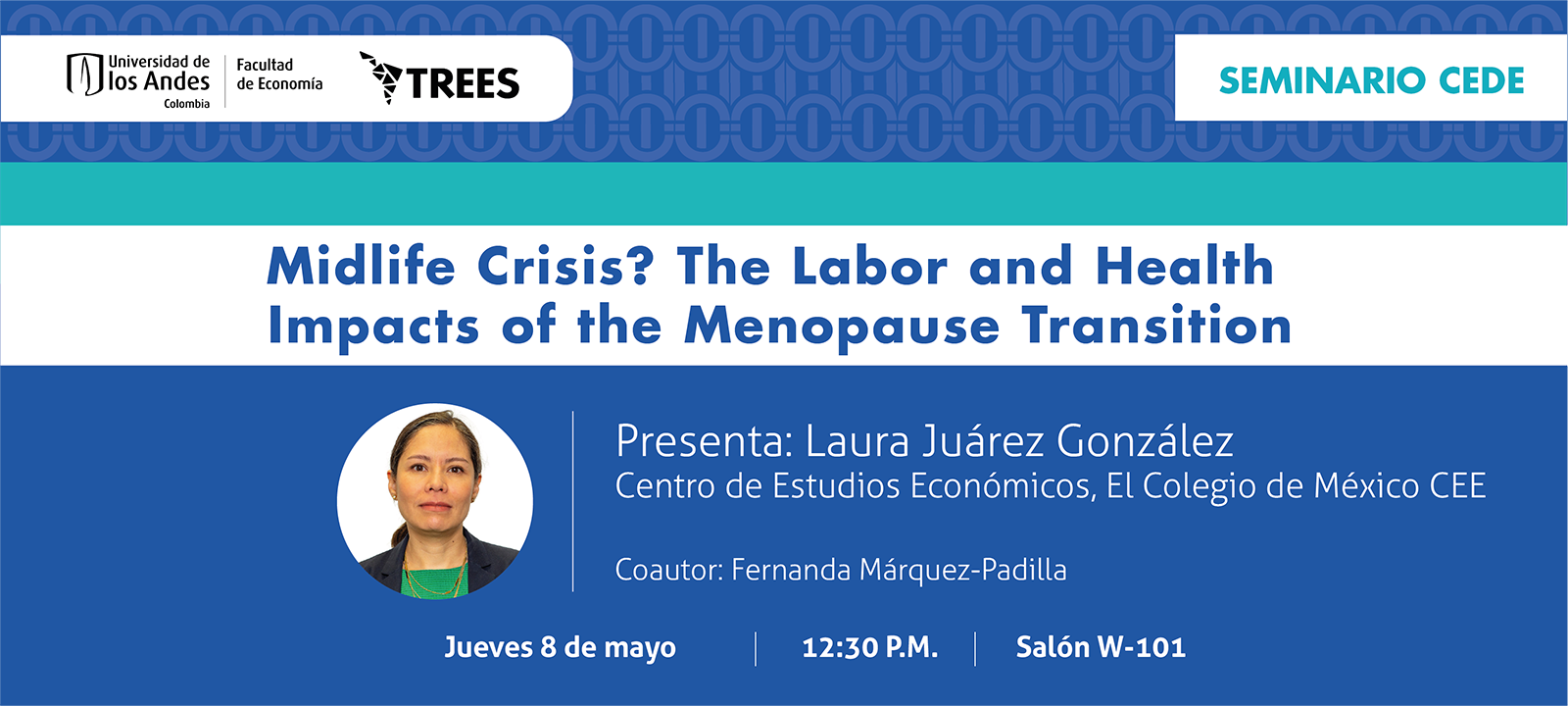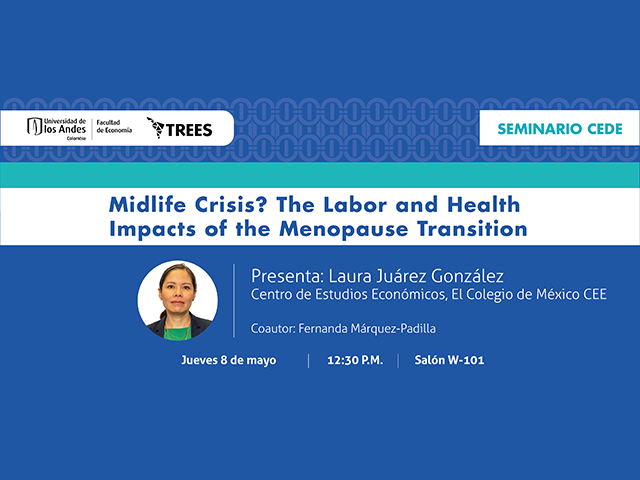Seminario CEDE - Laura Juárez González

We estimate the labor and health effects of the menopause transition for U.S. women. Using data from the NLSYW and the SWAN and applying an event study methodology which exploits the individual-level variation in the time of menopause, we find that women undergoing this transition have a lower probability of employment of almost 20 percentage points, and a higher probability of working part-time if they remain employed. We do not find significant impacts on their monthly earnings or hourly wage. Regarding health, we find that menopause increases the probability of having osteoporosis and bone fractures but does not have a significant impact on the probability of being diagnosed with diabetes, high blood pressure, or high cholesterol. We also find that the probability of taking hormones to treat symptoms increases throughout the menopause transition, as expected. However, such increase in hormonal take-up is concentrated among White and highly educated women, which highlights the unequal access to treatment, and probably different menopause experiences, associated with traditional markers of socioeconomic status.

